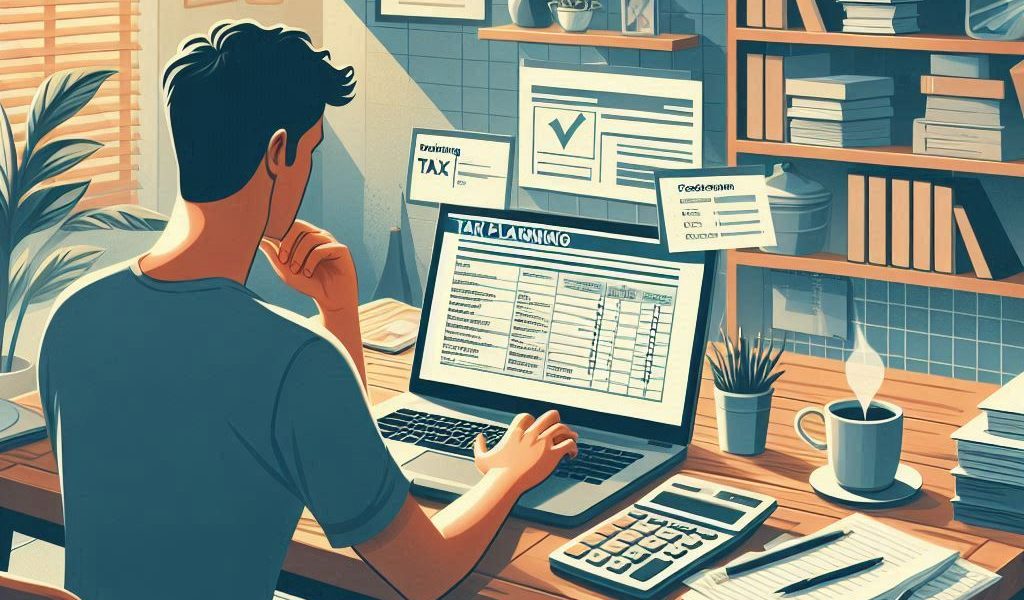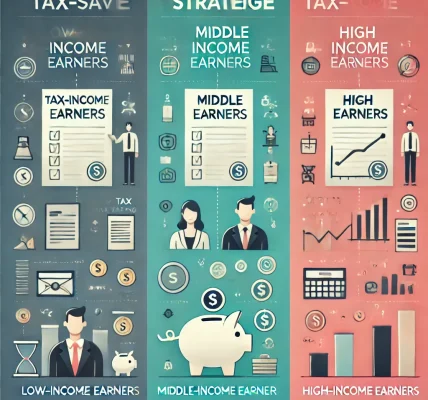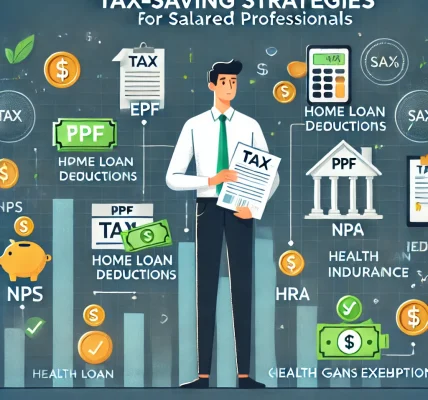Freelancers and self-employed individuals have the unique advantage of working independently and setting their own schedules, but with this freedom comes the responsibility of managing your taxes. Unlike salaried employees who have taxes automatically deducted from their paychecks, freelancers must take a more proactive approach to ensure they are meeting their tax obligations while maximizing their deductions.
Effective tax planning can help you minimize your tax burden and avoid surprises during tax season. In this comprehensive guide, we’ll explore tax planning tips and strategies specifically tailored for freelancers and self-employed individuals.
Why Tax Planning Is Crucial for Freelancers and Self-Employed Professionals
As a freelancer or self-employed person, you don’t have the luxury of relying on an employer to handle your tax withholdings. This means you are responsible for calculating, paying, and filing your own taxes. Without proper tax planning, you may face:
- Higher Tax Bills: Without planning, you may not take full advantage of tax-saving opportunities, leading to a larger-than-expected tax bill.
- Penalties and Interest: Missing tax deadlines or underreporting income can result in penalties and interest charges from tax authorities.
- Cash Flow Issues: Freelancers often struggle with uneven income, making it more challenging to set aside money for taxes.
By adopting a proactive approach to tax planning, you can avoid these issues, reduce your tax liability, and keep more of your hard-earned money.
Key Tax Planning Tips for Freelancers and Self-Employed Individuals
1. Understand Your Tax Obligations
The first step in tax planning is understanding the taxes you owe. Freelancers and self-employed individuals are generally responsible for paying:
- Income Tax: You pay income tax on your earnings, just like any other individual.
- Self-Employment Tax: This tax covers Social Security and Medicare taxes for self-employed individuals. Self-employment tax is calculated on your net earnings, so it’s important to track your business expenses accurately.
- State and Local Taxes: In addition to federal taxes, you may also be subject to state and local taxes, depending on where you live and work.
2. Keep Track of Your Business Expenses
One of the most effective ways to reduce your taxable income is by keeping detailed records of your business expenses. Freelancers can deduct ordinary and necessary expenses that are directly related to their business, including:
- Office supplies and equipment
- Marketing and advertising costs
- Business-related travel expenses
- Home office expenses (if applicable)
- Professional fees (e.g., legal or accounting services)
- Insurance premiums (business insurance or health insurance)
By deducting legitimate business expenses, you can reduce your taxable income and lower your overall tax bill.
3. Set Aside Money for Taxes
Unlike salaried employees, freelancers and self-employed individuals don’t have taxes automatically deducted from their income. To avoid a big tax bill at the end of the year, it’s crucial to set aside money regularly to cover your tax obligations.
A good rule of thumb is to set aside 25-30% of your income for taxes. You can open a separate savings account dedicated solely to tax savings, which will help ensure you’re not spending the money you need for your taxes.
4. Pay Estimated Taxes Quarterly
As a freelancer or self-employed individual, you’re typically required to make quarterly estimated tax payments to the IRS. These payments cover both income tax and self-employment tax. If you don’t make these payments, you could face penalties and interest.
To avoid penalties:
- Calculate your estimated tax liability for the year and divide it into four payments.
- Make payments on time each quarter—typically due in April, June, September, and January of the following year.
- Keep track of income and expenses throughout the year to adjust payments if necessary.
5. Take Advantage of Tax Deductions
Freelancers and self-employed individuals have access to a variety of tax deductions that can reduce their taxable income. Here are some of the most common deductions:
- Home Office Deduction: If you work from home, you may be eligible for a home office deduction. You can deduct a portion of your rent or mortgage, utilities, and maintenance costs related to your home office space.
- Health Insurance: If you pay for your own health insurance, you may be able to deduct the cost of your premiums. This is especially helpful for self-employed individuals who do not receive benefits from an employer.
- Retirement Contributions: Contributing to retirement accounts like a Solo 401(k) or a SEP IRA can reduce your taxable income while helping you save for the future. These accounts allow you to contribute much higher amounts than a traditional IRA or 401(k), which is a major advantage for self-employed individuals.
6. Consider Incorporating Your Business
As your freelance business grows, you may want to consider incorporating your business as an LLC or S Corporation. Incorporation can offer several tax advantages, including:
- Reduced Self-Employment Tax: If you structure your business as an S Corporation, you may be able to reduce the amount of self-employment tax you pay by paying yourself a reasonable salary and taking the rest of your earnings as dividends.
- Additional Deduction Opportunities: An LLC or S Corporation can allow you to take advantage of more deductions, such as health insurance premiums for your employees (including yourself).
- Liability Protection: While not a tax benefit per se, incorporating your business can provide legal protection for your personal assets in case of lawsuits or debts.
7. Track Your Income and Expenses Regularly
Staying organized and keeping accurate records of your income and expenses is essential for tax planning. The better your record-keeping, the easier it will be to file your taxes and claim deductions.
You can use accounting software, hire an accountant, or even keep a detailed spreadsheet of your income and expenses. The goal is to track every penny that comes in and goes out, so you’re not missing out on potential deductions.
8. Hire a Tax Professional
Tax laws can be complex, and as a freelancer or self-employed individual, you may face unique tax situations. Hiring a tax professional who specializes in working with freelancers can help you navigate tax laws and ensure that you’re maximizing deductions and minimizing liabilities.
A tax professional can also help you:
- File your taxes correctly and on time.
- Advise you on tax strategies specific to your situation.
- Help you stay compliant with local, state, and federal tax regulations.
Conclusion: Plan Ahead for Tax Season
Tax planning for freelancers and self-employed individuals is all about being proactive. By understanding your tax obligations, keeping track of expenses, setting aside money for taxes, and utilizing available deductions, you can reduce your tax liability and avoid unpleasant surprises at the end of the year.




